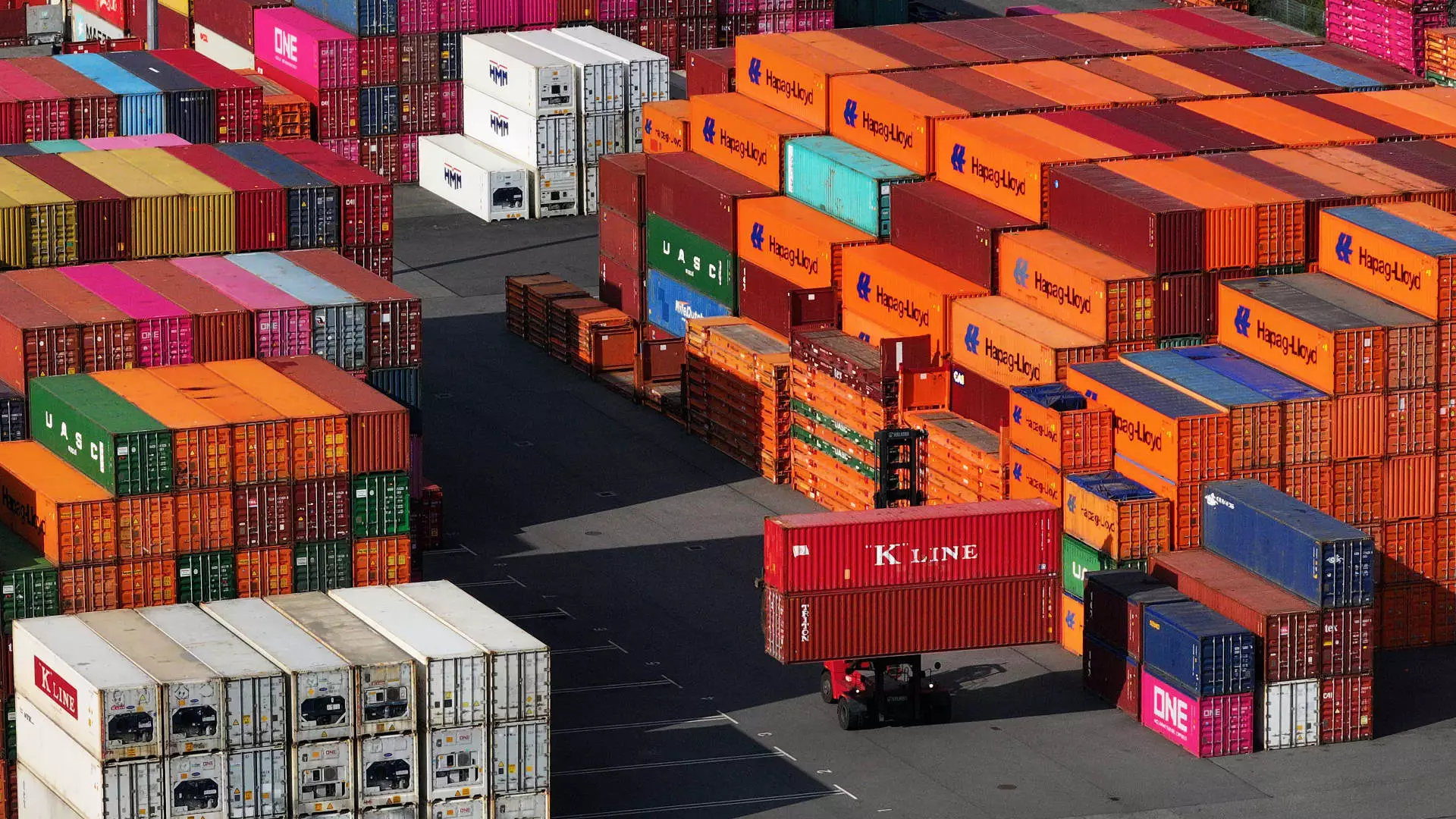As America stares down the barrel of an uncertain economic future, President Donald Trump’s fixation on tariffs as a possible replacement for income tax showcases a desperate grasp at perceived fiscal relief. His assertion, voiced during an April 15 interview with Fox News, suggested that revenue generated from imposing tariffs might be substantial enough to overhaul our current federal income tax system. The idea isn’t just whimsical; it reveals a dangerous misunderstanding of both macroeconomics and the intricacies of government revenue. Economists uniformly brand this proposal as unrealistic, urging caution—not just inside Washington, but within the boardrooms of American businesses that also feel the grasp of tariff-related volatility.
Digging Deeper: The Numbers Don’t Lie
To grasp the enormity of the miscalculation, it’s essential to look at the numbers. The U.S. has imported around $3.1 trillion of goods in 2023, a staggering figure. However, contrasting this with the over $20 trillion collected through the income tax illustrates that the tariff tax base is far narrower. Economists such as Kimberly Clausing from the Peterson Institute for International Economics emphasize that the revenue thresholds proposed by Trump are more akin to fantasy than fiscal strategy. With tariff rates ranging wildly—up to 145% on certain imports from China—one must question the real economic impact these levies could have.
While Trump’s trade advisor, Peter Navarro, ambitiously projected a potential revenue hike to $600 billion annually, experts like Mark Zandi from Moody’s promptly counteracted this claim, suggesting realistic figures would likely hover between $100 billion to $200 billion. This disparity between expectation and reality raises alarm bells; not only is the revenue far less substantial, but it also underscores the flawed logic that higher tariffs inherently mean more revenue.
Behavioral Economics at Play
The concept of tariffs fundamentally clashes with the principles of behavioral economics. Consumers naturally react to shifts in pricing, and higher tariffs lead to increased costs for imported goods, thereby reducing consumer spending. As prices rise, demand tends to decline—an outcome that would negate any potential revenue gains from escalating tariff rates. Clausing points out that government revenue would ultimately drop if tariffs are excessively high, as consumers shift their purchasing patterns in search of cheaper alternatives.
Additionally, the notion that the administration can merely raise tariffs to boost revenue is simplistic and dangerous. Such a strategy ignores the complexities of market dynamics and consumer behavior. Proposed tariffs are often met with retaliatory measures from trading partners, compounding the economic turbulence and resulting in an overall decrease in U.S. gross domestic product, effectively negating any potential gains.
The Broader Implications of Tariff Dependency
The fixation on tariffs illustrates a deeper, systemic failure in understanding modern economic realities. Relying on tariffs to replace income tax not only jeopardizes the stability of consumer spending but also threatens the fabric of global free trade. As the International Monetary Fund recently downgraded U.S. growth forecasts amidst ongoing trade disputes, it becomes increasingly clear that policy driven by an insular perspective risks alienating the very economic ecosystems that support American businesses.
The reality is that tariffs cannot serve as a substitute for well-structured tax policy or a viable revenue stream. Attempting to place such reliance on them could fracture international relationships, bumping up the costs of essential goods and ultimately hurting the middle-class families Trump professes to champion.
A Call for Rational Economic Strategy
As we navigate these tumultuous economic waters, it’s imperative for policymakers to foster an environment that encourages innovation, efficiency, and stability rather than resorting to punitive measures such as tariffs. The potential for creating jobs and increasing federal revenue lies not in isolationist trade policies but in engaging collaboratively with the global market. Instead of grasping at straws, American policy should focus on sustained growth strategies that understand and adapt to the realities of modern economic interactions. The question remains: will our leaders learn from history, or will they repeat the same mistakes?

